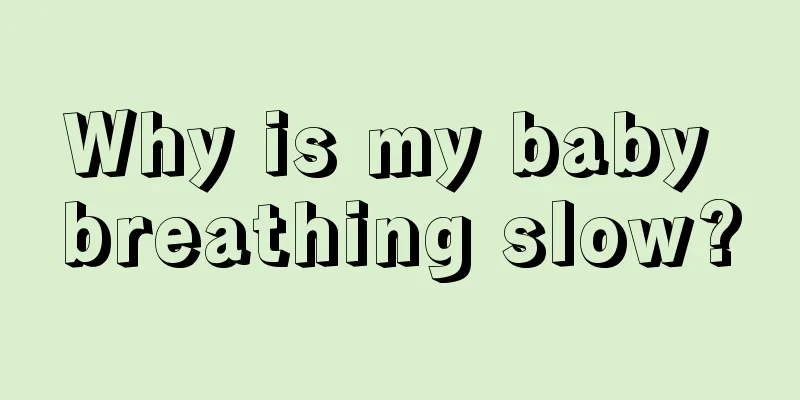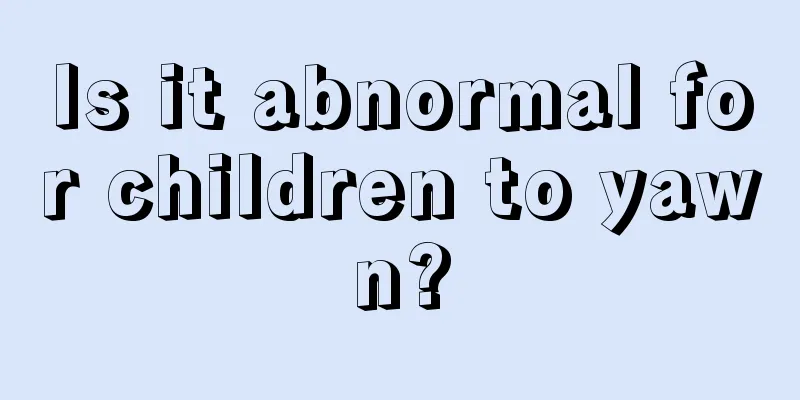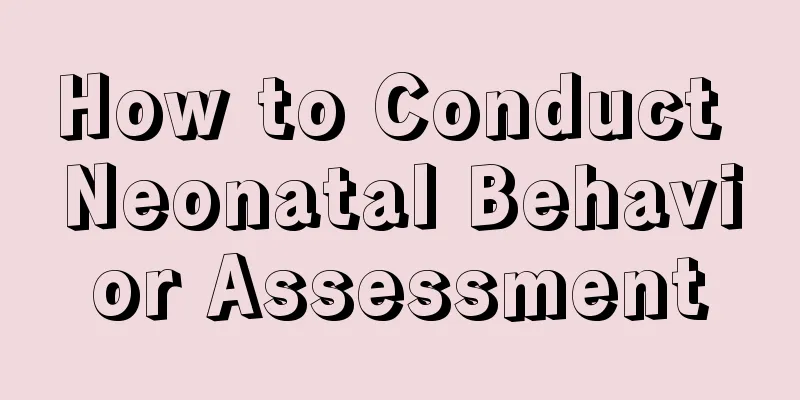Why is my baby breathing slow?

|
Many times we can understand the baby's physical development and whether he is affected by some diseases from his breathing condition, because we will find that some babies breathe faster and sometimes slower. Therefore, if we want to ensure the baby's health as much as possible and help them prevent the harm caused by these diseases, we need to fully understand what kind of reasons may easily lead to such problems in the baby's breathing. Respiratory system: Newborns mainly breathe abdominally with irregular rhythm, sometimes fast, sometimes slow, sometimes deep, sometimes shallow, and even apnea. The breathing rhythm of newborns is often irregular, sometimes fast and sometimes slow. This phenomenon is more obvious when the baby is sleeping. Some young mothers worry too much about this, wondering if their baby has some disease? As we all know, the fetus in the mother's abdomen relies on the umbilical vein to get oxygen and expel carbon dioxide through the umbilical artery. It does not need to use the lungs to breathe at all, but the fetus has weak and ineffective breathing movements. After delivery, the stimulation of the birth canal squeezing, changes in environmental temperature and other factors act on the child's respiratory center, causing the newborn to take a deep breath, which is the first breath. Immediately afterwards, the child starts crying, and this is the baby's true autonomous breathing. However, the respiratory muscles of newborns are weak due to lack of exercise, and they mainly rely on the diaphragm to breathe. Therefore, when the baby breathes, the chest movement is shallow, while the abdominal movement is more obvious, which is abdominal breathing. Because the chest cavity is weak and sinks as the diaphragm descends, the flow of air into and out of the lungs is restricted, resulting in poor exchange of oxygen and carbon dioxide. This can cause the baby to suffer from hypoxia and irregular breathing rhythm. In addition, the incomplete regulatory function of the respiratory center of the newborn can also cause irregular breathing rhythm, especially during sleep, the baby's breathing may be fast or slow, or even stop breathing sometimes. It can be seen that the newborn's breathing is shallow, sometimes fast and sometimes slow, which is a normal physiological phenomenon. As long as the child's skin is rosy and not bluish purple or gray, there is no need to panic. As parents, we cannot ignore the physical health of our babies. However, we all know that many diseases or adverse physical symptoms are different. If we want to solve them effectively, we also need to understand the causes first, so that we can solve and treat them accordingly. |
<<: What causes baby's heavy breathing?
>>: Solutions for baby's heavy breathing
Recommend
What to do if your baby has a cold and refuses to drink water
The frequency with which a person catches a cold ...
Is high white blood cell count serious in children?
If you find that your child's white blood cel...
Can I use a cold towel on my child's forehead when he has a fever?
Children have weak resistance, and especially whe...
What are the symptoms of anemia in a two-year-old baby?
Blood is essential for our body to maintain norma...
The reason why babies have swollen eyes in the morning
In fact, in daily life, many people who have just...
Facial neuritis in children
Facial neuritis in children is a symptom with a r...
Why does the baby cry at night?
We all know that babies spend most of the day sle...
What to do if your child has shingles
As we all know, children are a high-risk group fo...
What to do if your baby falls to the ground
For new parents, there are many things to learn, ...
What to do if your child has a mild cough and phlegm
Even a mild cough in a child should be taken seri...
Six types of seasonings to remove the fishy smell from children's food
Many ingredients are very nutritious, but because...
How to discipline naughty children?
Most children will go through a period of time wh...
How to relieve hoarseness in children's throat?
It is the basic nature of children to love playin...
What causes dry mouth in newborns?
Many mothers have encountered this situation when...
What to do if your baby's lips are dry and peeling
Cold and dry weather can easily lead to dry lips,...









